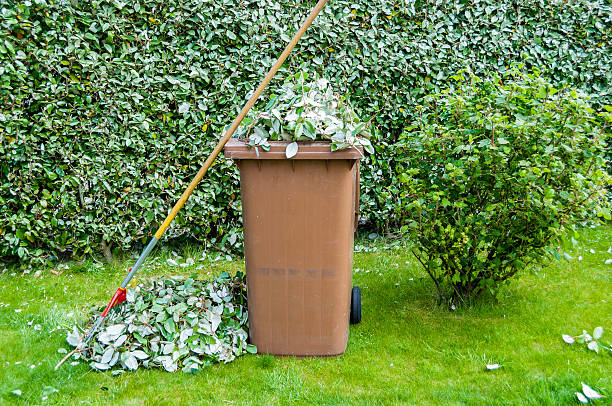Spring Yard Waste

It’s Officially Spring!
Time to get out and celebrate the welcome break from winter and enjoy nature. Of course, with that comes the next round of grass cutting, weeding and all of the other joys of springtime yard work. All that work creates yard waste. First, let’s start with defining yard waste. Yard waste is items like tree trimmings, branches, leaves, weeds, house/garden plants, brush, grass clippings and lawn edgings. It does not include items like soil, sand, sod, tree trunks or stumps, chemical or pressure treated woods, rocks, stone, concrete or bricks.
According to the Environmental Protection Agency, an average of 12% of yard waste makes up the waste stream. 12% doesn’t sound like a lot, does it? But 12% in this case equals about 35.4 MILLION tons! That is a huge amount! Of the amount that has been tracked going to landfills, about 7.2% or 10.5 million tons is deposited in landfills nationwide each year. That’s an awful lot! Instead of bagging and throwing away your yard waste, consider a few different recycling options listed below.
Now that we know what yard waste is, what do we do about it?
When it comes to grass clippings, try grass-cycling! Grass-cycling the process of mulching the grass clippings right back into your lawn. This process not only helps to keep it healthy and growing by returning necessary nutrients and moisture, but also requires minimal effort. There is no need to rake, bag and move those bags around. Simply mow the grass with the mulcher setting and walk away. You can also do this with leaves in your yard, which provides much needed natural fertilizer.
For weeds, leaves and other green (or former green) debris, try making a compost pile. Composting allows the yard waste to decompose naturally with minimal effort. It also provides a home and fresh foraging for smaller animals and bugs. If you have leaves, twigs, and branches you can always look into a small mulcher. These home variety mulchers shred leaves and branches to create your own fresh mulch. You can use your fresh mulch in flower and vegetable beds or even share with your neighbors.
What if I can’t recycle yard waste at home?
If you don’t have the time, space or inclination to recycle your yard waste at home, check with your township to see if they have yard waste drop-off sites or pick-up days on schedule. In many municipalities, yard waste programs have been implemented to provide residents with a place to dispose of their yard waste. That yard waste gets recycled (composted, mulched, etc.) and is used in different community programs and for township maintenance. Your yard waste could turn into mulch that lines the park and makes it look appealing!
Yard waste recycling is a vital part of keeping the ecological system strong, nurturing your yard and garden and keeping highly recyclable materials out of the waste stream. Remember, the more waste that is generated, the more costly it will be in the future to dispose of it, particularly as the challenges of landfill space continue to grow.